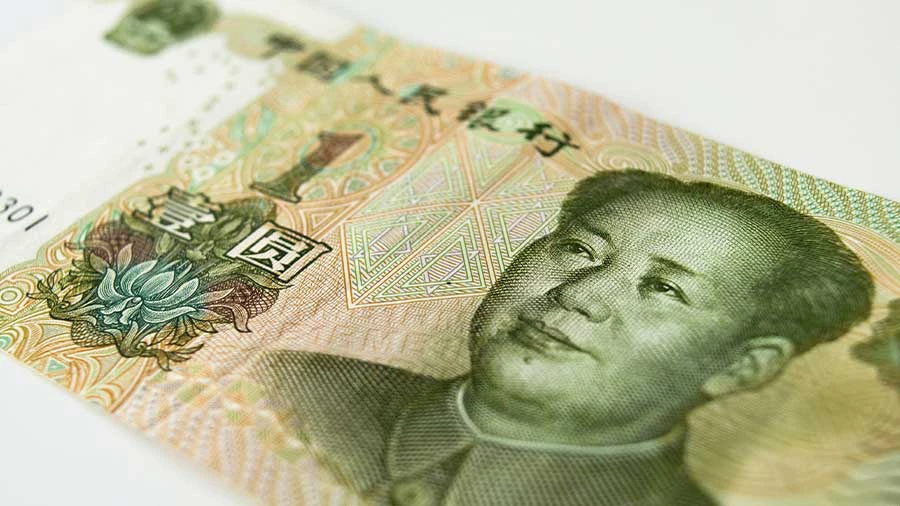The Internet has already demonstrated its profound impact on people's lives, work, and all aspects of society. With information communication technology (ICT) constantly progressing and innovating, the Internet appears poised to transition into the next era, from the current Web 2.0 landscape to Web3 or Web 3.0, triggering a new round of information revolution. In this article, we track the development of Web3 in China in its race for technological supremacy, linked to global economic influence and strategic capabilities. We also highlight several applications of Web3 and blockchain technology opportunities in the country, such as in NFTs, supply chain resilience, and respective industries.
Background: the transition from Web 1.0 to present
In 1993, right before the advent of Web1.0, the United States issued the National Information Infrastructure Plan paving the way for the information age and gaining the global leadership of Web1.0 and Web 2.0. After 30 years, the Internet is now transitioning to Web 3.0. The size of this new market, which reached US$ 3.2 billion in 2021, is predicted to grow at a compound annual growth rate (CAGR) of 43.7 percent over the next 10 years. Meanwhile, the capital market is betting on associated sectors: Web 3.0-related start-ups worldwide received investments totaling US$25.2 billion in 2022 an increase of 700 percent over the previous year.Web 3.0 technology-enabled industries and innovation are also benefitting from government support and incentives as countries strategically compete to lead the research and development (R&D) landscape powering future infrastructure. As per Google Trends, the online search interest for Web3/Web 3.0 has surged in recent years, largely in Asian powerhouse economies like China, South Korea, and Singapore. Moreover, data from Baidu, China’s leading search engine, also shows an increase in the popularity of the term.
What is Web3?
Web3 (also known as Web 3.0) is a newer version of the World Wide Web that combines ideas such as decentralization, blockchain technology, and a token-based economy. In 2014, Gavin Wood (former CTO of Ethereum and creator of the Pokécoin project) openly associated this new idea with blockchain for the first time, forging a consensus around the budding movement. By 2021, venture capital firms, cryptocurrency enthusiasts, and big technological businesses had all begun to show interest.A single, officially recognized definition of Web3 has yet to emerge since the concept is still evolving. What’s certain is that Web3 heavily emphasizes the use of decentralized and blockchain-based technology. It also encompasses artificial intelligence (AI) and machine learning, which will serve Web3, providing more intelligent and adaptive applications. The idea of the Semantic Web – an extension of the Internet which aims at providing programs with machine-interpretable metadata – is another recurrent element in the development of its definition.
Web 3.0 key features
Webpages within Web1.0 and Web2.0 technologies were designed and delivered using Hypertext Markup Language (HTML). With Web3, HTML will remain a core layer of web-building, but its relation to data sources and their location may differ from past web generations. In the Web 2.0 age, most websites and almost all apps relied on some sort of centralized database to supply data and support their functionality. With Web 3.0, such services will employ a decentralized blockchain system rather than an arbitrary central authority.Indeed, blockchain and Web3 communities strongly support the idea of decentralized autonomous organizations (also known as DAO) as an alternative form of governance. With DAO, Web 3.0 technologies and communities will gain a type of self-governance, which will allow them to move away from centralized control over platform operations.
In line with this, Web3 is also expected to function with cryptocurrencies – constructed and enabled on top of blockchain technology, allowing financial activities in the form of decentralized payments. Lastly, a key aspect of Web 3.0 will be an overall increase in automation, mostly driven by AI.
Web 3.0 applications and uses
With blockchain at its core, Web3 facilitates a growing range of new apps and services. The following are projected to be among the most popular uses of future Internet networks:- Non-fungible Tokens (NFTs): These are tokens that are individually unique and are kept on a blockchain with a cryptographic hash. Any sort of data, including but not limited to movies, home property records, music, autographs, and art, can be saved as an NFT. Ethereum (ETH) is now the most popular crypto blockchain for NFTs, followed by Solana (SOL). Since the information on NFT is non-fungible, no one else can duplicate it. It may be seen, shared, and traded, but not duplicated.
- Metaverse: The metaverse technology makes it possible for people to communicate with one other using virtual 3D avatars in an animated reality, as well as for businesses to run within the same online environment. Web3 is seen as one of the pivotal enablers of such technology, allowing for a more immersive experience in virtual communication, content marketing, and, more broadly, digital transactions – which all cross paths with the metaverse.
- Decentralized Finance (DeFi): Decentralized Finance (DeFi) is another new application, facilitated on Web 3.0 that will enable the provision of financial services beyond the bounds of traditional centralized banking infrastructure, but instead supported by decentralized blockchain technology.
- Cryptocurrency: In Web3, cryptocurrencies will exist as decentralized projects that perform smart contracts and automated transactions on the Internet. As discussed above, blockchain technology is fundamentally linked to the very nature of Web 3.0.
- Decentralized Gaming (GameFi): Decentralized Gaming, or GameFi, describes any game in which players participate in voting on the game's features and all the data is kept on a blockchain. For instance, in the Axle Infinity Game, participants who successfully complete specific objectives can win AXE crypto tokens, which they can subsequently wager, or lock up for voting rights. In other words, players may use their staked AXE token to cast a vote on a variety of issues, including gaming mechanics, game visuals, content, and more. Therefore, Web3 will transform the gaming experience to become essentially consumer-centric, with an emphasis on using the game as a service rather than a standalone product.
- Decentralized Science (DeSc): Blockchain technology is useful also in the field of science and medicine, to store and categorize enormous volumes of data – such as genome sequencing, as we have seen during the COVID-19 pandemic. Certain regions of the world have used blockchain technology to control the supply and logistics of vaccinations, specifically to prevent the spread of fake vaccines and/or the wastage of real vaccines.
Web3 development in China
China and the United States took distinct paths as they transitioned into the Web 3.0 era. In the United States, with its open competitive environment for innovation and cutting-edge technology, the market has taken the lead as the primary (autonomous) driver of development in the field. Compared to the US, China has focused more on data exchange and industrialization in its development of Web3.Given the country's unique internet environment and the characteristics of Web 3.0-related technology, particularly blockchain, government-led projects were an inevitable choice. China's Xinghuo Blockchain Infrastructure and Facility (Xinghuo BIF, 星火• 链网), for example, is among the state-owned rising stars that have gained momentum in recent years.
The development of Web 3.0 in China is highly controlled by the central government and succeeding in various ways. Chinese blockchain applications are pursuing digital transactions in blockchain-based collaboration, data sharing, intelligent manufacturing, and distributed energy production emerging in areas such as medical care and government affairs. In the field of the supply chain, it is now possible to source traceability of agricultural products, industrial products, medical records, electronic invoices, and judicial evidence, among others. Finally, the pilot project for the promotion of the digital renminbi is also proceeding well.
However, the realization of China's Web3 is yet to catch up to that of other countries, specifically the US. The government's rigorous control over cryptocurrencies, the absence of pertinent legal system research, and ambiguous law enforcement norms have all emerged as barriers to the development of Web3 businesses in the country. On one hand, the country outlawed the trade of cryptocurrencies, essentially outlawing the trading of NFTs on public blockchains like Ethereum. On the other, however, this move has inspired a growing number of Chinese businesses to explore new uses of blockchain technology. According to a market report by IDC China's blockchain market may be valued at more than US$3.2 billion by 2025, with a CAGR of 47 percent between 2020 and 2025.
At present, the Web3 industry in China has begun to develop the specific types of applications as discussed below.
NFTs
The digital collection sector now has the best development, the most vitality, the strongest liquidity, and the most widespread engagement among the five major Web 3.0 industries. The development trend of the Web 3.0 sector in China through NFT digital collections appears to diverge from that of the international NFT market, though. While NFTs can be an investment outside of China, the country has actively discouraged its financial transaction scope. In addition, due to multiple administrative constraints, developers of NFTs in China have not yet established an official secondary market for these.Gaming
Blockchain technology is rapidly becoming an integral aspect of gaming in China. Around the world, it has notably given rise to a new sub-genre called “Crypto-Games”, which allows players to earn cryptocurrency while playing. In China, where decentralized digital currencies are banned, gaming companies have been quick to find other solutions. Alibaba for example is rewarding players with NFTs on its first blockchain game, Ant Adventure, which can be played through the Alipay app.Supply chain
Blockchain technology can speed up data processing and help with product verification along the supply chain. These uses may include international trade and are not constrained by national borders. A case in point is the export of US soy to China using the Easy Trading Connect platform, which drastically reduced the amount of time needed to process the shipment's data. To trace food along the supply chain, Walmart China and VeChainThor blockchain are creating the Walmart China Blockchain Traceability Platform. A second use of technology in this field is product verification. For instance, JD Digit's Blockchain Data Service in China is the first of its type in the country.Medicine
The advent of the COVID-19 pandemic has brought up five significant issues within the medical supply chain, namely, the fluctuating product needs, trustworthiness of payments, the trustworthiness of suppliers, tracking during transit, and customs certifications. Putting an emphasis on simplifying medical procedures and guaranteeing data security, blockchain is one potential solution to these issues. Since the introduction of Alibaba's blockchain project for protecting medical data in 2017, China has been very active in the medical sector, especially with regard to data treatment and verification. Baidu and Tencent are two other leading firms researching blockchain-based solutions in the industry. Both companies have created platforms for distributing medical data among several organizations. For instance, in Chongqing's Yuzhong District, Baidu introduced XuperChain, an open-source blockchain network for storing medical data, such as diagnosis and treatments.Energy
Another example of an effective blockchain application is within the energy sector. Energy Blockchain Labs Inc., a Beijing-based company, created a blockchain-based platform for selling carbon credits using IBM blockchain technology. By enabling high- and low-emitters to trade carbon credits using smart contracts, the platform promises to increase transparency and expedite efforts to reduce greenhouse gas emissions. This project will also create compliance with the governmental-mandated Certified Emission Reduction Scheme (CER).Digital yuan
China has developed its own virtual currency, the digital yuan (or e-CNY). Pilot projects concerning the e-CNY have already been expanded to 23 areas across 15 provinces nationwide. The beta version of the digital yuan app was formally released for iOS and Android on Chinese app stores at the beginning of 2022, marking a significant advancement for the e-CNY. This is the first time the app is openly available for anybody to download and use in any of the chosen trial cities.China policy trends impacting Web 3.0 innovation and tech applications
Strict regulation of cryptocurrencies and various precautionary measures taken by the Chinese Mainland have created gaps between China’s Web3.0 quality and delivery, compared to other regions worldwide. Since the Chinese government banned cryptocurrency-related activities due to concerns about illegal financial activity and market volatility, Chinese blockchain networks are generally lacking cryptocurrency. And yet, Chinese authorities are keen to build up the blockchain technology without allowing the decentralized financial transaction that goes with it. In other words, government support exists but is only limited to certain applications of the technology.In fact, Web 3.0 infrastructure is included in the country's upcoming major innovation priorities. Indeed, the Chinese government views blockchain dominance as crucial for strategic national development – especially since the country has struggled to stay on top of other cutting-edge technologies like semiconductors.
The 14th Five-Year Plan represents China's biggest political push for blockchain since 2019, when President Xi Jinping mentioned it in a session of the Politburo, predicting that the technology would become critical to the next wave of innovation and economic change. A few days after Xi’s famous speech, the People's Bank of China announced the launch of its own centralized digital currency, the e-CNY – also officially known as digital currency electronic payment (DCEP) – setting another record for China as the first big economy to successfully introduce a central bank digital currency.
Thus, along with other crucial technologies like AI, deep learning, and the Internet of Things, the Chinese government has deemed the development of blockchain technology to be a matter of national importance.
Government-led projects
Blockchain-based Service Network (BSN)
To achieve its goals, China has established a Blockchain-based Service Network (BSN). BSN is a low-key (and yet ambitious) project aimed at enabling businesses, governmental organizations, financial institutions, and others, to develop decentralized applications (dApps) on the blockchain at a reasonable cost. The platform's goal is to facilitate interoperability across various blockchains and protocols in addition to providing the necessary infrastructure and assisting in the widespread adoption of the technology. The platform is backed by state-owned enterprises like China Mobile and China UnionPay, as well as a state think tank called the State Information Center, in charge of overseeing the platform. Moreover, Tencent-owned WeBank, and Baidu are some of the big partners involved in the project.Numerous dApps, while still in the testing phase, already exist on the platform and offer multiple services that range from identity verification to smart contracts and financial solutions. Supply networks have been among the most common apps. For instance, the local administration in Yunnan (a Chinese province that is well-known for its tea) stated that it intends to utilize an app on the BSN to follow shipments of its valuable Pu'er tea.BSN is now also launching a version of its platform to be used in the international markets, although it will not allow the exchange of foreign cryptocurrencies like Bitcoin and Ethereum – given that the so-called open blockchains are not allowed in Mainland China. A beta version of this new blockchain, known as the BSN Spartan Network, is expected to become operative on August 31, 2022.
Legal governance
In May 2022, China officially included blockchain technology into the realm of legal governance, when the Supreme People's Court issued the Opinions on Enhancing Blockchain Applications in the Judicial Area. The document provides clarification on both the broad criteria for building blockchain platforms for people's courts and the standards for judicial application of blockchain in general. Additionally, it suggests four common uses for blockchain technology: to strengthen judicial legitimacy, to increase judicial effectiveness, to strengthen judicial coordination, and to support economic and social governance.Investing in China's Web3 architecture and scope for businesses
With the government touting blockchain technology as a foundation for growth, the business sector is equally implementing it swiftly. Similar to the public sector, China's blockchain strategy for businesses emphasizes efficiency and disintermediation. Enterprise policy is unique in that it has a competitiveness component. Every year, the domestic private blockchain market becomes more developed. Blockdata, an industry tracker, reports that as of late 2018, China had 263 active blockchain initiatives, accounting for 25 percent of all active projects worldwide. This is consistent with Beijing's ambition to dominate the sector.This momentum can be observed in how swiftly Chinese businesses are embracing blockchain technology in comparison to their Western counterparts. We anticipate that as blockchain technology gains support and acclaim from Chinese leaders and governing bodies, scientific research institutes will pay it more attention and devote more resources to it. In line with recent estimates, we also anticipate seeing more businesses start blockchain initiatives, and work together to the realization of a Web 3.0 environment. China will keep advancing its position as a global leader in the field, even if that means taking a different road than other countries. The Chinese blockchain industry, for example, will maintain its focus on the integration with other cutting-edge technologies, such as artificial intelligence, big data, and the Internet of Things, which will all contribute to different applications of Web 3.0.
Even looking at the financial application of Web 3.0, while numerous Chinese businesses specializing in related technologies have relocated their operations overseas in recent years as a result of the government’s crackdown on cryptocurrencies, they are far from completely abandoning China. They adhere to a specific winning formula used by previous generations of IT companies: offshore incorporation, continued presence in China, and pursuit of international markets. Thus in the future, there may be space for this aspect to develop as well. After all, many of the biggest cryptocurrency exchanges in the world, including Binance, FTX, KuCoin, Crypto.com, OKX, and Huobi, had their start on the Mainland.
All things considered, China still accounts for one of the largest talent pools in the industry, which give it a huge advantage for the development of future information technology. The country's footprint in the technology industry and state-backed incentives for innovation and R&D also look highly attractive for foreign investors.











